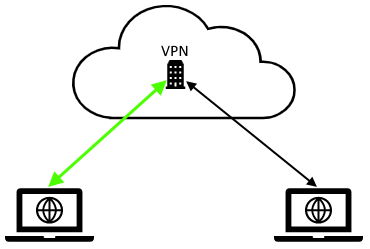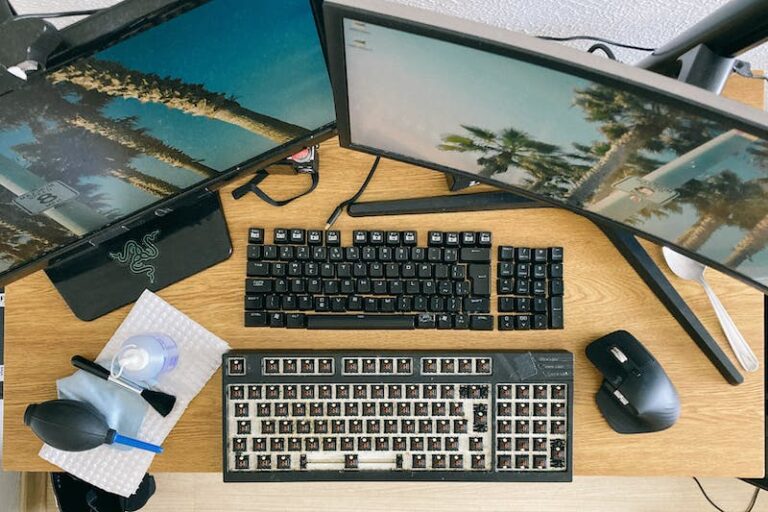How A VPN Works – Benefits And Disadvantages
You hear lots of people recommend using a VPN, but what does this VPN thing do for me?
The Basics: How a VPN Works
In simple terms, a VPN creates a secure connection between you and your VPN provider. You are encrypting your data between the first half of your network connection. You’ll see below why you may want this.

Benefits of a VPN
#1 Protection on public networks
When you connect to a free WiFi network, like in a coffee shop, hotel, live event, etc…, so can the bad guys. This makes it easy for these bad guys to be able to try to access your data and activity.
Here are a few thing they may try:
- Access your phone or computer
- Monitor your network traffic
- Perform man-in-the-middle attacks
- They are free to do almost anything they choose
Using a VPN will put a security barrier around your connection while you access the internet on public networks.
#2 Bypass Geo-blocking
Geo-blocking is a technology that restricts access to internet content based on the user’s geographical location. The location is determined by a number of factors, but the main way is checking the user’s IP address.
By using a VPN, you are able to select a location from where your VPN connection will access the internet. This will allow you to bypass some region locked services.
For example, BBC iPlayer is a streaming service to view BBC television but is restricted to UK-Based viewers. You might be able to use a VPN to get access to the service when you are outside of the UK.
#3 Hide activity from your ISP
Your ISP (Comcast, AT&T, etc…) is able to see what sites you are accessing. They don’t see exactly what you are doing because most websites use HTTPS, which encrypts the data.
But they can see the IP address of the site you are going to, so they’ll still know if you went to YouTube or your bank.
If you use a VPN, then they only see that you are going to the IP address of the VPN service. And they can’t see where you go through the VPN.
Disadvantages
- Slower internet speed – Your speed will be reduced when using a VPN. The speed will depend on the encryption strength used and the location you choose for the VPN connection.
- Blockage of VPN services – Some sites and services will block IP addresses coming from VPN services. Netflix is a good example of this.
- Cost – It’s an additional monthly cost to your regular internet service. There are free VPN services, but they are generally not reliable and have limitations.
- You have to trust your VPN provider – When using a VPN, all your internet traffic is going through them. You now have to trust that they do not log or sell your internet activities.
- Use of VPN can be illegal in some countries – Some countries either regulate or outright ban VPNs. Those currently include Belarus, China, Iraq, North Korea, Oman, Russia, and the UAE to name a few. Using a VPN in the U.S is currently legal. Know your country’s laws before using one.
Conclusion
If you use public WiFi, then you should consider getting a VPN service.
If you mostly use your home, work, or cellular internet, then a VPN service is probably not something you need.



